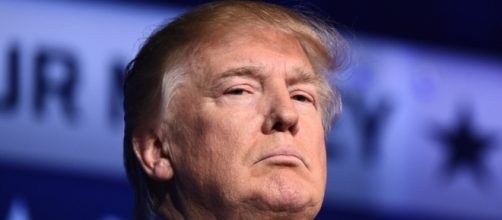Since being sworn in as the new president just under two weeks ago, Donald Trump has made drastic changes in how the United States does business. The most controversial has arguably been his "Muslim ban" executive order, which has continued to stay in the headlines.
Trump on "Muslim ban"
Last Friday, Donald Trump signed off on several executive orders, with one restricting travel from seven different countries in the Middle East, while also impacting green card holders and other refugees. Within hours, airport security were detaining individuals in compliance with the order, with sparked multiple protests breaking out across the country.
Despite the backlash, Trump and his administration have continued to stand by their decision, which remains a hot topic of conversation in the news media. In Kuwait, a similar ban has been put in place, which Trump was happy to hear about, as seen on his Facebook page on February 2.
Donald Trump posted an article link on his Facebook page from the Middle East website "Albawaba," which details Kuwait's decision to follow in similar footsteps as the new "Muslim ban." "Smart," Trump added on, while praising the ban. While not as lengthy as Trump's restrictions, individuals from Iraq, Syria, Pakistan, Iran, and Afghanistan will not be able to obtain visas in Kuwait regardless if it's related to tourism or trade.
Kuwaiti officials confirmed to local news sources that the ban was in place due to "instability" in the restricted areas.
The Muslim ban could cost America $66 billion a year https://t.co/FukeecAGvA pic.twitter.com/Vh7ZofptYQ
— Newsweek (@Newsweek) February 2, 2017
The countries on the list have all had issues with the rise and spread of Islamic terrorism, a major issue of the Donald Trump administration.
Since the rise of the Islamic State in Iraq and Syria, Kuwait has been hit with multiple terrorists attacks, including the bombing of a Shia mosque back in 2015, which resulted in 27 civilian deaths. Kuwait had previously banned entry to Syrians back in 2011, but those who were already in the country were not impacted.
Moving forward
The backlash against Donald Trump over his executive orders and other actions have only increased since Inauguration Day, and don't look to be slowing down anytime soon. As the political divide continues in the United States, it's expected to be a long four years for Trump in the White House.

